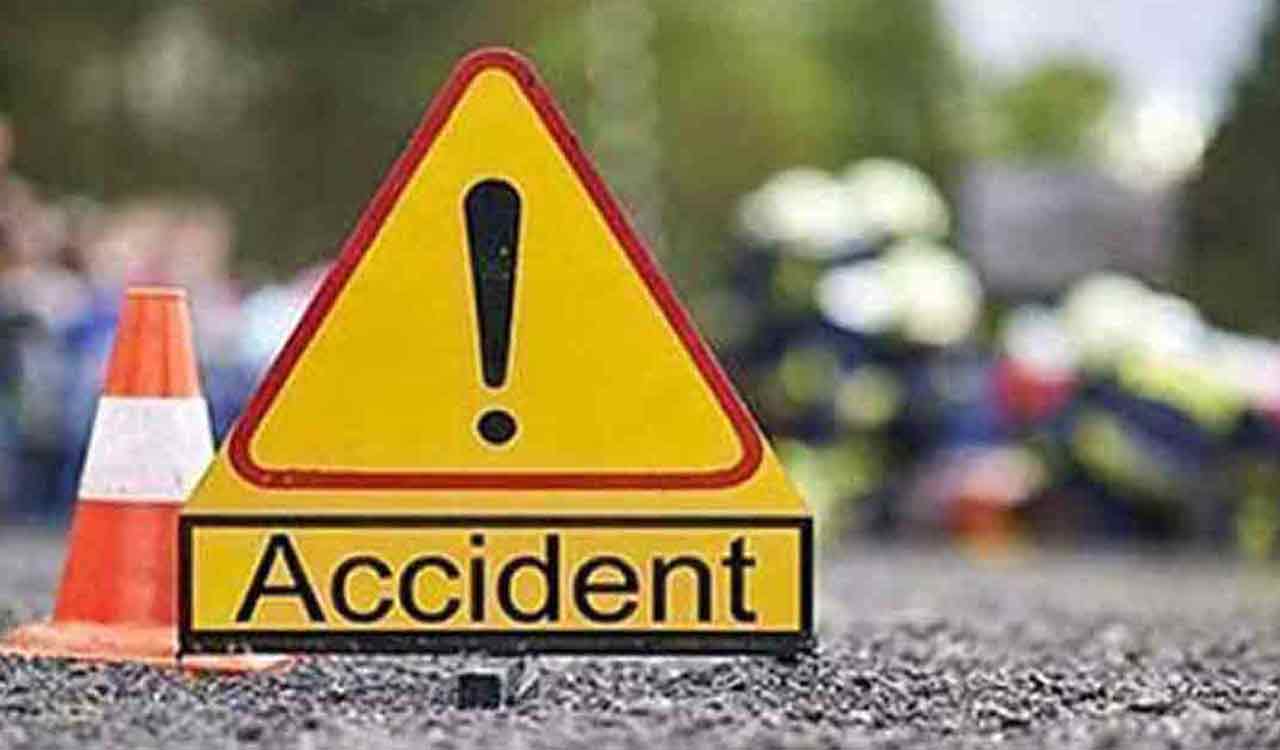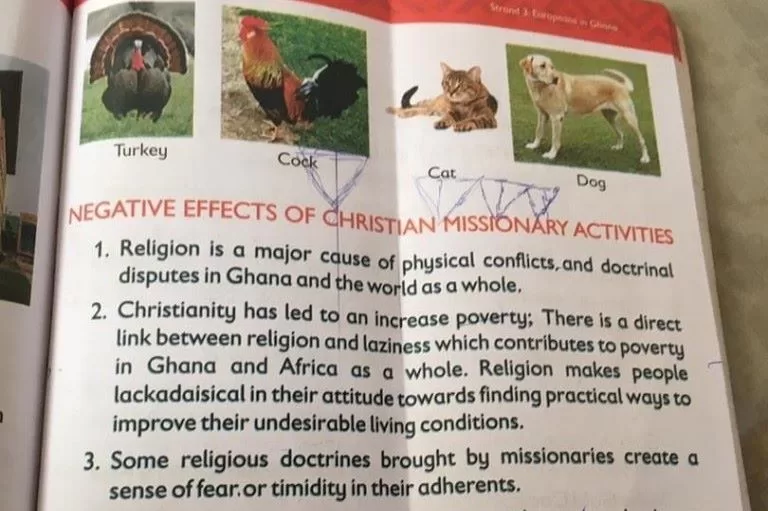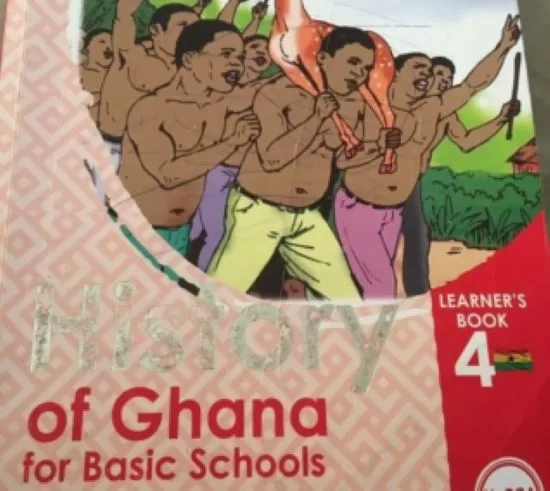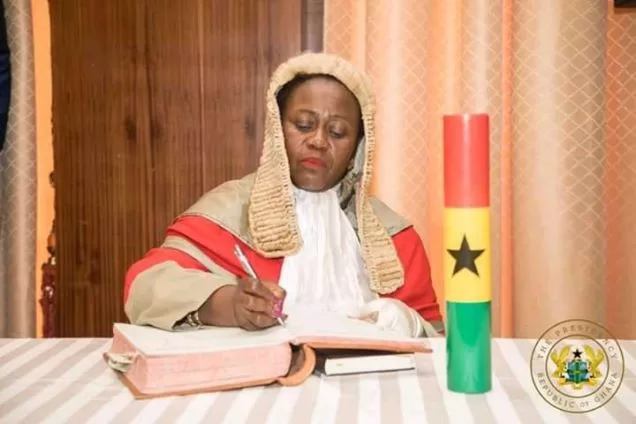Some parents are raising concerns about the contents of a history textbook for basic 4 pupils on religion, specifically Christianity.
In the book entitled History of Ghana for Basic Schools, authored by Francis Benjamin Appiah and Henry David Appiah, a section lists some points about the negative effects of Christian missionary activities.
Among the points listed, it is stated that Christianity has led to an increase in poverty in Ghana.
In addition to the given points, it is opined in the book that religion is a major cause of physical and doctrinal disputes in Ghana.
This has ignited a debate with some parents expressing worry about how a book approved by the National Council for Curriculum and Assessment (NaCCA) portrays religion and Christianity.
Some experts from Eduwatch and the Institute for Education Studies (IFEST) have also raised concerns about the book’s approval by NaCCA.
Eduwatch’s Programmes Director, Divine Kpe said the purpose of that section of the book is to enable students to generate ideas for debate on the effect of European missionaries in Ghana.
“When you look at the basic 4 curriculum for Religious and Moral Education, that particular objective for which the authors are writing to is about the pupils debating the effect of Christian missionaries or European missionaries in Ghana, some of their effects.
“So it’s actually expected to be a debate that the pupils were to have. In so doing, I think the authors were trying to generate ideas that the people can raise in terms of their debate,” he said on JoyNews’ AM Show on Thursday.
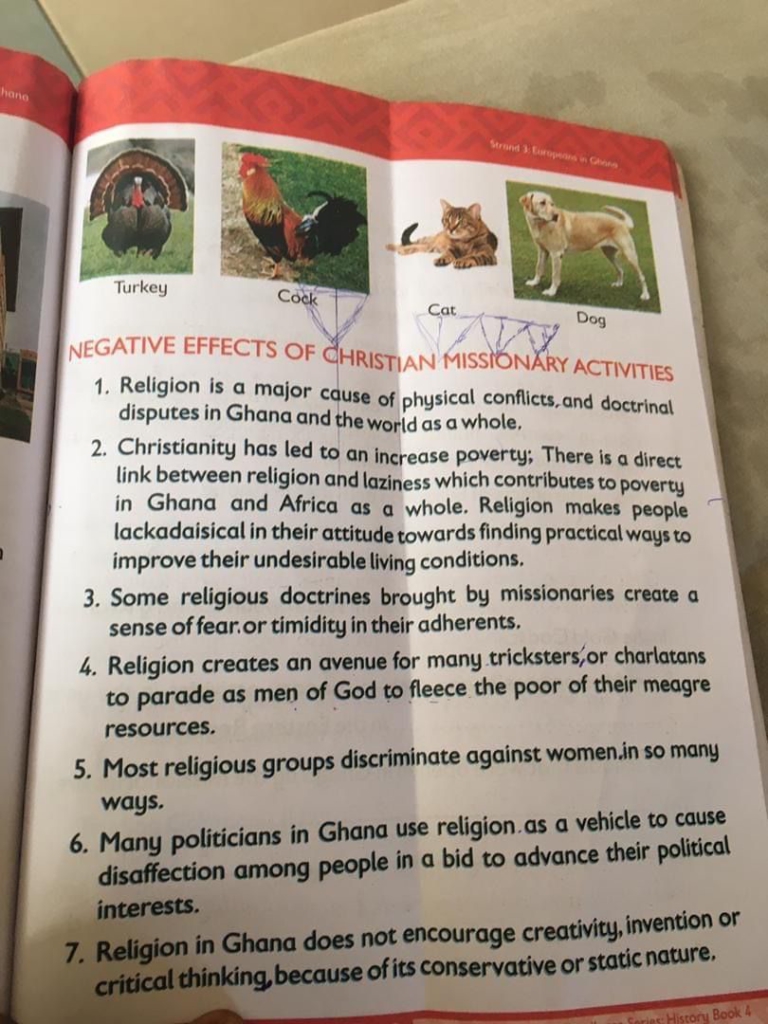
Mr Kpe, however, contended that there were inaccuracies in some of the points.
He also said the inaccuracies breached some standard NaCCA guidelines given to publishers who submit their books for validation. This includes the criteria of accuracy, currency of the content matter, and relevance of the content to the curriculum.
Mr Kpe criticised the authors for their subpar work and noted that the existence of such a book on the market was a result of NaCCa’s failure to fulfill its mandate.
But speaking on the same show, a Deputy Spokesperson for the Ministry of Education, Yaw Opoku Mensah asserted that the book in question was not the official one approved by the NaCCA.
He claimed that per the information provided to him by NaCCA, the approved version of the book did not have the section in question.
However, another panelist on the show, Executive Director of IFEST, Dr Peter Anti would not have any of those claims.
Dr Anti insisted that the book in question had been approved by NaCCA
“There is a published document of about 66 pages that lists all the books that have been approved by NaCCA and this document is there. It’s on page 56, so this book is approved,” he stressed.
Dr Anti added that the publishers should be placed on a blacklist by the NaCCA and given the appropriate punishment if, indeed, the book in circulation on the market was not the one that had been approved by NaCCA.




